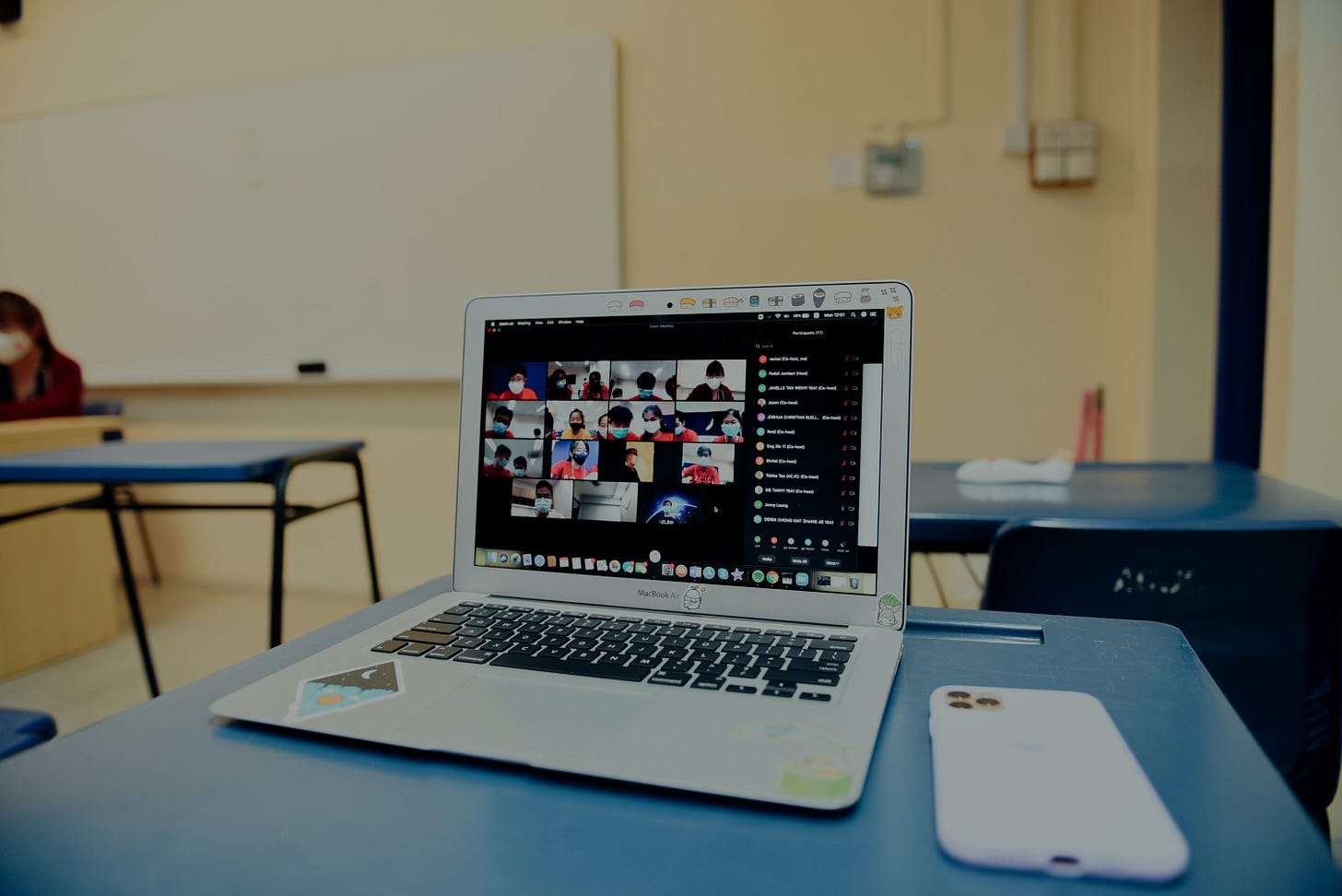I recently had the opportunity to discuss education with an elderly retired Thai businessman. He had no connections to education and even less interest. However, he was interested in the soundbites coming out of the mouth of Elon Musk – a man whom he appeared to have elevated to a near-God-like status, presumably on account of his near-God-like wealth.
Drawing on the musings of Musk, the Thai businessman claimed that schools would soon disappear, to be replaced by, well, he didn’t say. But the implication was that all teaching would soon be done online.
Though that is not quite the same as saying all kids can stay in their bedrooms and zoom learn. My point here is that the Thai businessman and Elon Musk may both be confused, and somewhat in denial about formal education’s innate value, but they are each articulating a growing discourse, which is that education will need to change because of Covid-19.
A lot of people, many of whom have little direct experience of education, are now jumping to a lot of very dangerous conclusions about the future of teaching and learning. And some of these individuals will be politicians with their hands on the educational purse-strings.
These are just some of the comments coming from prominent movers and shakers in the USA:
‘There may be an opportunity to reimagine what schools will look like.”
‘The reality is that this is going to change education forever.”
“[Online learning] is like a genie that is out of the bottle, and I don’t think that you can get it back in.”
“We’re taking all that we have learned from the pandemic – and others have learned – and going with it.”
“The pandemic has helped us see that it [full-time online instruction] is possible and can be done well.’
These five quotes, each from different individuals, all speak to the same discourse, which is that online learning will somehow replace formal in-class teaching, perhaps not completely in every instance, but enough to bring about radical change to the way in which schools and colleges operate.
What no one acknowledges is that the real genie which online learning has let out of the bottle is the possibility of saving an awful lot of money by no longer needing to pay teachers to do the job for which they are trained and for which we all need them.
A recent study by the Rand Corporation, a non-profit research organisation, found that 2 in 10 US school systems were adopting virtual schools, or planning to. If you imagine this is because it has been proven that Zoom learning is a realistic, viable, productive alternative to in-class teaching, then you are mistaken.
What is driving this is not quality, it is cost-cutting.
Not surprisingly, teacher federations are starting to sound the warning too.
‘Remote learning is a supplement, not a substitute, for in-school instruction. Staring at a screen is not optimal. Zoom fatigue is very real.” (Randi Weingarten, President of the American Federation of Teachers).
The truth is, we have as yet no real idea of the true educational consequences of the pandemic, though back in September a UNICEF study suggested that more than 1 billion children have been put at risk of falling behind due to school closures. Some global studies suggest students have, on average, fallen two months behind in learning. Another study, revealing American children have lost 116 days reading time and 215 days of math, suggests a ‘skill shock’ to the US economy alone of up to $30 trillion over the next 100 years. While past studies into adults who have been home-schooled show they are much less likely to have a college degree.
As ever, those most at risk are poorer students, those with learning challenges, isolated, and without the necessary resources for online learning.
But politicians looking to save money, and business people looking to make it, won’t wait for educational academics to undertake research on the pandemic and education and get it published. Already the plans will be in place to reduce in-school classes, reduce the teaching day, reduce the number of teachers, and fill in the gaps with zoom or the like.
This is going to be yet another battle which educationalists are going to have to fight, alongside that of inclusivity, diversity, safeguarding, student-centred learning, differentiation, and globalisation of the curricula.
If you are reading this then it’s likely you are an international educationalist. You and I both know that there are some benefits to online learning, in some clearly identifiable circumstances. You also know that this last eighteen months has been nothing less than a global educational disaster and few children will have not been left disadvantaged by having to do online classes.
Zoom is no replacement for physical classrooms and computer screens are no replacement for teachers. And as for ‘zoom fatigue’ who hasn’t experienced that over the past year?
But, long after Covid has finally and thankfully past, the biggest danger brought on by this pandemic could still be lying in wait for us.
WHERE’S YOUR COPY?
International Schooling: The Teacher’s Guide is getting around. Seen here by a pool in Thailand.
Where’s your copy? Send us a picture and we’ll feature you in EDDi and on social media.
About the book
Practical and easy-to-access, this comprehensive guide provides insight into one of the biggest, and most exciting, career transitions and life adventures many teachers ever make.
Whether you are new to this world or experienced, this authoritative text introduces, examines and unpicks the highs, the lows, the perks and the pitfalls of international schooling.
For anyone aspiring to, new to, being recruited into, or currently enjoying international teaching, it is essential reading.
Enjoying EDDi?
As ever, if you are enjoying EDDi, please consider forwarding it to someone who would get a lot out of it.
If you were forwarded this email, you can subscribe to receive EDDi every fortnight.



